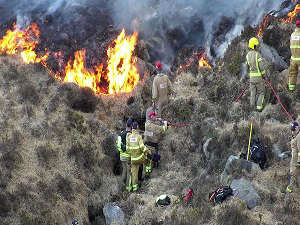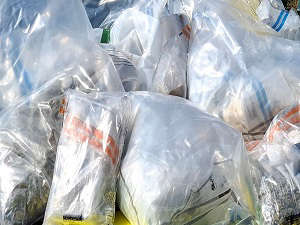
By Alison Kershaw, Press Association
Sixth formers in Northern Ireland will learn tomorrow if they have scored the A-level grades they need to secure a coveted university place.
For some the day will bring delight and celebration, but for others it will be fraught with anxiety and uncertainty.
The proportion of top grades achieved by Northern Irish students has been on the rise in recent years.
In 2016 more than 26,000 pupils sat the exam with the overall A*to E pass rate equal to that of 2015, at 98.2%.
Girls continued to outperform boys in obtaining the top marks, but examiners said the gap was narrowing year on year.
The number of girls taking so-called STEM subjects - science, technology, engineering and mathematics, was also on the rise.
For the first time in many years there will be no visit to schools or colleges by a Northern Ireland Education Minister.
The collapse of Stormont in January and the subsequent political impasse means no executive ministers are in place to congratulate students.
Here is some advice for students who have missed their required grades, those who have done better than expected, and those who are unsure what their next move should be.
My grades are lower than I expected, what shall I do?
Best thing to do in this situation is to not panic, and consider your options.
You should try contacting your chosen university first to see if they will still accept you, this may still be a possibility, especially if you have only dropped by one grade for example.
Clearing, the annual process which matches students with courses that has available places, is also an option.
The process has changed in recent years, particularly since the cap on numbers was lifted allowing universities to recruit as many students as they like, and there is expected to be a wide variety of courses available at a range of universities this year - including a number of leading, selective institutions.
The Ucas website is one of the key places to go for information about available courses.
I've got higher grades than I expected and I want to change my course/uni, what should I do?
There is a process called "adjustment" which allows students who do better than expected to "trade up" to a different course or university. Again, students can find out about courses through the Ucas website or by contacting individual universities.
A number of top institutions are actively encouraging students who are likely to do better than they first thought to get in touch with them about available courses.
Annie Dobson, a careers adviser with the Government's exam results helpline suggests that this is a good time to take a step back and ask yourself why you are considering changing your choice.
"Try not to be swayed by the idea of going to what is considered a 'better' university," she said. "Take stock and review the whole picture before jumping ship.
"If you're going to make the change ensure you get an offer not only verbally but also in email from the university you want to move to before they ask to be released from your existing offer."
What do I do if I have changed my mind about my chosen course or university?
The first thing to think about is why you have changed your mind, Ms Dobson said.
"Again, knowledge is power and so need to ask why? What is making you review the options? And, actually, are there even more options to look at while you are in this state of indecision that might be even more suitable.
"Often people often don't really know what they want to do as a job at such a young age and so looking at taking a gap year or a more vocational road through apprenticeships or an HND can also be a great way of taking some time to work it out."
Alex Hayman, Which? Managing Director of Public Markets, said: "Whether you're now looking ahead to taking up your place at university, changing your study choices or working out a whole new plan, there are options open to you.
"Given that a third of university applicants who apply through clearing regret their course choice, it is vital that you make the right decision for you."
Which? University allows students to research courses based on their grades, he said.
How quickly do I need to choose a place in clearing, are the best ones going to go on the first day?
It is best not to "panic buy" courses and take your time to think about what you are signing up for, experts suggest.
"Many places become available over the course of the few days after clearing so don't have what is known as fear of missing out or fomo!," Ms Dobson said.
Students should think about what they want out of their course, and their life in general, rather than focusing on what they think they should be doing just because clearing has opened.
I've decided I want to take a gap year, is this a good idea and what should I do?
A gap year can be valuable experience for a lot of students, whether they spend time overseas or remain here in the UK.
Businesses are often looking for more than just a degree from graduates nowadays, and a gap year can be a chance to show off a different set of skills to both future employers and universities.
Exam results helpline careers adviser Iwan Williams said: "Alongside the break from education and the chance to travel, a gap year provides the chance to spend time on self-development and build confidence, ideally by participating in a range of activities like volunteering, working etc, and then take that leap the following year."
The exams results helpline number is 0808 100 8000


 Firefighters tackle wildfire near Glenshane Pass
Firefighters tackle wildfire near Glenshane Pass
 Thousands march to derelict Casement Park to demand its redevelopment
Thousands march to derelict Casement Park to demand its redevelopment
 PPS to consider any basis for appeal against Oliver MacCormack sentence
PPS to consider any basis for appeal against Oliver MacCormack sentence
 Working group to assess impact of trade tariffs on Northern Ireland businesses
Working group to assess impact of trade tariffs on Northern Ireland businesses
 Drugs worth £860,000 seized following search in Kilkeel
Drugs worth £860,000 seized following search in Kilkeel